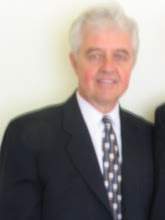“’If this had been onshore or in inland waters, shallow waters, this would have been a two-week deal at the outside,’ said Bill Abel, a veteran well control expert in Houston.”
Wall Street Journal, May 28, 2010
Energy is the driver of our high standard of living and our economy. Energy usage is what makes modern lifestyles possible.
Let’s look at just one example. As a child, I can remember my mother working hard on washday. This happened about once a week or so. She used an old-fashioned wringer washer, the type where the washing machine consisted of a tub with an agitator where the clothes were washed, and a mechanical wringer that squeezed the water out of the clothes. You had to feed the clothes into the wringer by hand and crank it by hand. The clothes were then carried out to the back yard and hung on the clothesline to dry.
After a load was washed, a drain hose from the washing machine was put into a sink and the dirty water was pumped out. Then, through another hose that was manually connected to the water faucet, the washing tub was filled again and the process repeated. It was all controlled manually, so one had to be there the whole time.
This was considered to be great progress over a washboard, which was backbreaking manual labor. That progress was made possible because the washing machine substituted electrical energy for human energy.
Nowadays, we put the clothes in the washer, push a button, and come back later to put the washed clothes into the dryer. Then we push another button, exerting almost no physical labor. The important point is that it’s all made possible by a readily available energy supply.
Here’s another personal example. One of my jobs as a kid was to keep the lawn mowed. Early on, the only lawn mower we had was a manual, reel type. You pushed it, and the wheels had a gear mechanism that made the bladed reel rotate to cut the grass. The person pushing the mower supplied all the energy. It took me hours to mow our modestly sized yard, and it was exhausting.
Then we got our first gas-powered mower. What a luxury!! I could mow the entire lawn in one hour. It was not self-propelled, but it was huge progress over the old reel type. Today, I have two self-propelled mowers plus a lawn tractor that enable me to do my five acres in the time it took me as a kid to do one small yard with a reel type mower. Again, this is possible because of a readily available, easily usable energy source.
As a side note, I challenge anyone who wants to reduce their CO2 emissions to mow their lawn with a reel mower.
America is blessed with vast energy resources. In total energy resources, America is number one!! We have more energy resources, coal, oil, natural gas, etc. than any other country in the world!! Russia is number two, and Saudi Arabia is number three.
Yet it seems as though many people in Washington treat our vast energy resources as a curse, and do everything possible to keep these energy sources from being used. People in Washington don’t want to build coal fired power plants, they don’t want to drill for oil, they’re afraid of nuclear power plants, they don’t want to develop oil shale, they don’t want to build refineries, they come up with schemes such as “cap and trade” to punish energy usage.
Then they tell us that, because we are so dependent on foreign oil, we must use less energy by driving tinny little cars, living in tiny houses, spending lots of money to “go green”, and paying much higher prices for gas and electricity.
The Federal Department of Energy (DOE) was formed over thirty years ago during the Carter Administration specifically because we were too dependent on foreign oil. DOE’s specific mission was to reduce this dependence. At that time, we imported 30% of our oil; now we import 60%. If we want to reduce our dependence on foreign oil, why don’t we just drill for our own oil that we know exists? Eighteen billion barrels of untapped oil are estimated to lie under the waters of the outer continental shelf, but yet are declared off-limits by Congress. Ten billion barrels lie near the Arctic National Wildlife Refuge, also off-limits. Potentially hundreds of billions of barrels of oil are in layers of shale beneath parts of Colorado, Utah, and Wyoming. Yet the only place where we are allowed by Congress to get oil is in deep water off shore where the risks are the highest.
It’s time that we as a society start dealing in reality and rationality when it comes to energy.
We need to recognize that ample, cheap energy sources are an extremely valuable national asset that enables us to have the highest standard of living in the world and to have an economy that is the envy of the world. It’s all dependent on energy usage.
Also, we need Congress to stop being schizophrenic on energy policy, telling us on the one hand that we shhould be energy self-sufficient and then on the other hand doing everything possible to prevent that from happening. We need to develop all of our own energy resources in safe and environmentally responsible manners.
Jessee Ring
June 1, 2010
Wednesday, June 9, 2010
Subscribe to:
Post Comments (Atom)

No comments:
Post a Comment